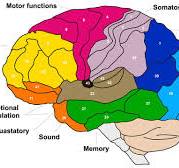Executive functioning skills are essential cognitive processes that enable individuals to manage their thoughts, emotions, and behaviors effectively. These skills are particularly important for high schoolers’ academic success, social interactions, and overall well-being. Here are some key executive functioning skills relevant to high school students: Planning and Organization: This involves setting goals, developing strategies, and creating plans to achieve them. High schoolers must effectively organize their time, materials, and tasks to complete assignments, study for exams, and balance extracurricular activities. Keeping your papers organized and knowing when assignments are due is a good start. Whether it’s post-it notes, different colored pens, or the various trackers available, find a system that cuts down on clutter and makes materials easy to see and find.
Time Management: High school students must learn to allocate their time wisely, prioritize tasks, and meet deadlines. Effective time management skills help students avoid procrastination, reduce stress, and maintain a healthy balance between academic responsibilities and other activities like napping and hoping it all goes away. (It doesn’t.) It’s so easy to get lost scrolling on Instagram or reading on Kindle. Set a timer and stick to it.
Attention Control: This refers to the ability to focus and sustain attention on tasks, ignore distractions, and shift attention when necessary. High school students must concentrate during class lectures, study sessions, and exams to comprehend complex information and retain key concepts. This has been a hard one with my townhouse undergoing major renovations. It’s loud! I learned about ambient noise devices, and they have been a huge help.
 Working Memory: Working memory involves holding and manipulating information in the mind for short periods. High schoolers use working memory when following multi-step instructions, solving problems, and completing tasks that require mental manipulation of information.
Working Memory: Working memory involves holding and manipulating information in the mind for short periods. High schoolers use working memory when following multi-step instructions, solving problems, and completing tasks that require mental manipulation of information.
Inhibition involves controlling impulses, regulating emotions, and resisting distractions or temptations. High school students must inhibit impulsive behaviors, manage emotions effectively, and stay focused on academic tasks despite external distractions.
- Flexibility refers to adapting to changes, shifting strategies, and approaching problems from different perspectives. High schoolers encounter various academic and social challenges that require them to be flexible in their thinking and problem-solving approaches.
- Goal Setting and Monitoring: High school students must set specific, achievable goals for their academic performance, extracurricular involvement, and personal development. They must also monitor their progress toward these goals, adjust their strategies as needed, and celebrate their successes. Start with small goals and work towards larger ones. Celebrate small wins.
- Initiation involves the ability to start tasks independently without excessive procrastination or avoidance. High school students must initiate studying, homework assignments, and other academic tasks promptly to avoid falling behind.
- Self-Regulation: Self-regulation encompasses the ability to manage emotions, cope with stress, and maintain motivation in the face of challenges. High school students must develop strategies for self-care, stress management, and maintaining a positive mindset to thrive academically and socially.
By understanding and supporting the development of these executive functioning skills, educators and parents can help high school students become more effective learners, problem-solvers, and decision-makers, setting them up for success in school and beyond.

